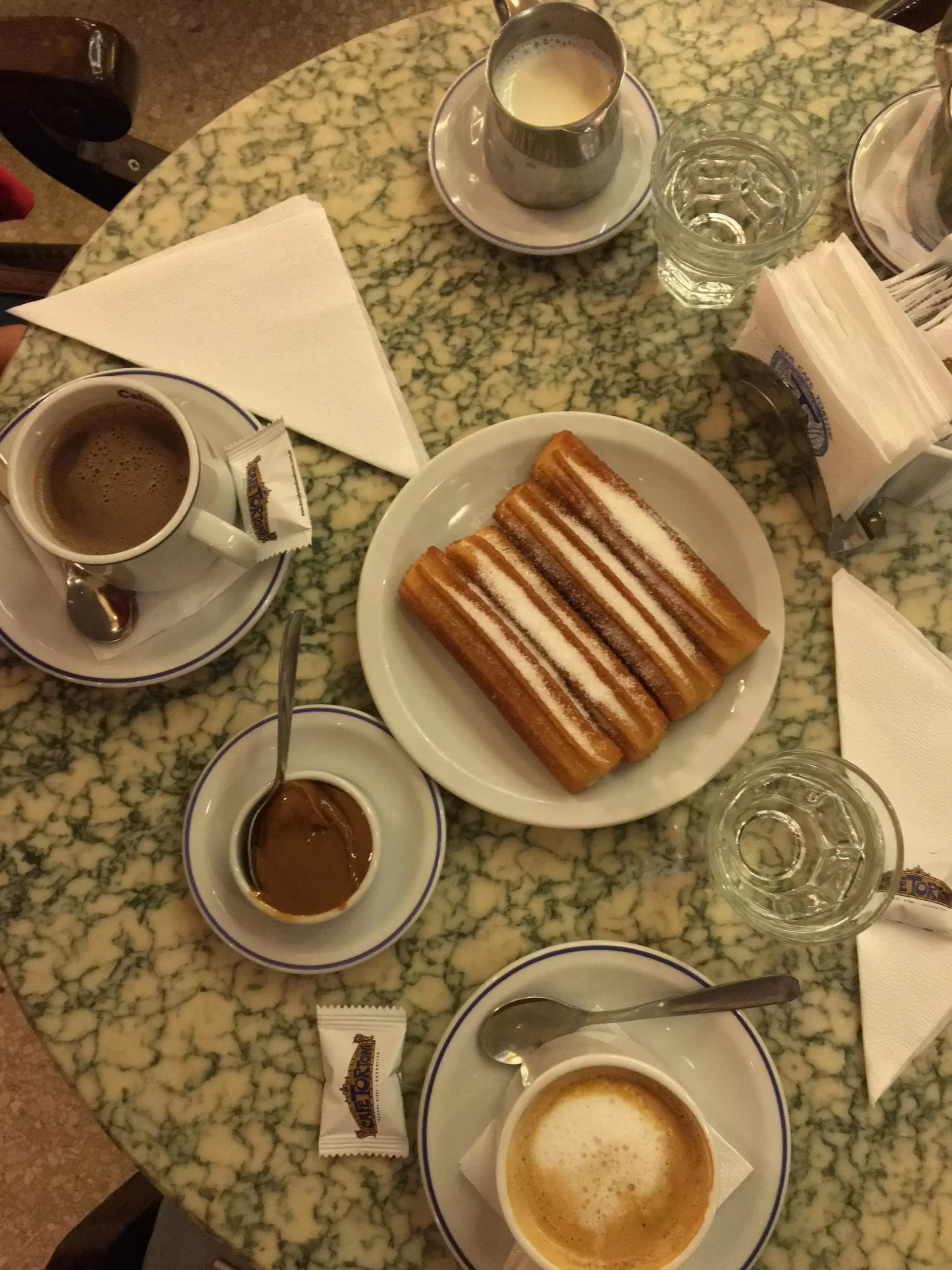What the Food in Buenos Aires Taught Me About My Latina Identity


As a person of Mexican descent living in the United States, I also identify as being a Latina. To be quite honest, I didn’t even know that the term “Latino” or “Latina” existed until about the third grade when I started taking standardized tests that asked me to bubble in my ethnic identity. At the time, young me asked my teacher, “What does Latina mean?” My teacher then turned to a giant world map and, while motioning to the land from the top of Mexico to the bottom of South America, said “It means that your family is from any country here.” That answer was enough for young me and I accepted it as truth. However, when I grew older I began questioning what my Latina identity truly meant.
My Latina Identity
I had heard the word on the news many times, especially during election seasons. It seemed that from the perspective of the United States, being Latino meant being one ethnically and culturally homogenous way. Growing up in that kind of environment made me think that being Latino was like being a part of one giant group of people that all talked the same, heard the same music, ate the same food, and had the same experiences. That idea of Latino-ness paired with me being raised surrounded by Mexican culture gave me a conception of who a typical Latino was. I thought that all Latinos liked tacos, spicy food and mariachi music just like the Mexican culture does.
In fact, it was this association with being a Latina that made me want to study abroad in Argentina. My misconceptions about the Latino identity led me to believe that Argentina and its culture would not be much different from Mexico’s. I had thought that I would situate myself immediately when I arrived in Buenos Aires, without any need for an adjustment period. But, a few weeks into my study abroad program I found myself in a weird state of culture shock and confusion. The people of Buenos Aires could not stand anything spicy at all in their cuisine and while I had expected to find taco stands at every corner instead, I found pizza stands. Dishes like gnocchi, spaghetti, and various other kinds of pasta were considered standard Buenos Aires cuisine. My first weeks in Buenos Aires were a culture shock for me, not because of my American roots but because of my expectations as a Latina. The culture in Buenos Aires was so much more Italian than I had expected. Based on its food, Buenos Aires was showing me a whole different aspect of what the Latino identity is.
Later on in my Argentine History class I discovered why there was so much Italian influence on the food in Buenos Aires. In the early 20th century the city had experience a great wave of European immigration, much like New York had at the same time. I was so shocked. It was strange to me how a Latin American country could, in some cases, have more in common with the United States than with a country in its in own region. The more that I learned about Argentina’s history and culture, the more profound and complicated the word “Latino” and became for me.
Argentine Food
There was one item of food that I encountered in Buenos Aires which reminded me exactly of home. To my surprise, churros were as abundant in Buenos Aires as they were in my small Tex-Mex border town. When I ate churros in Buenos Aires I thought of home but now, when I eat churros back home I’m reminded of Buenos Aires. Although the fact that churros exist in both Mexican and Argentinian culture does reflect on the similarities between various Latino customs, it’s still not enough for me to be convinced that one single Latino culture exists. There are some things that unite Latinos, like our language or certain desserts, but there are many more differences than there are similarities between our cultural identities.
As I spent my time abroad eating more pizza and pasta with no tacos in sight, my idea of what it meant to be a Latina was constantly being challenged and changed. My study abroad experience in Buenos Aires, Argentina taught me that there is no homogeneity when it comes to Latinos and their culture. I learned that it was wrong of me to look at the Latino identity through an American lens and think that all Latinos shared the same culture. There is truly much more complexity when it comes to the Latino identity, and my experience studying abroad taught me that I don’t have to be any specific way to be a Latina.
Briza Maldonado is a student at the University of Texas at Austin and studied abroad on the IFSA Summer in Buenos Aires program. She served as an international correspondent through the First-Generation Scholarship program.